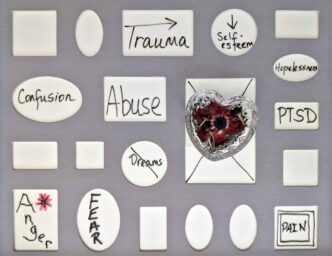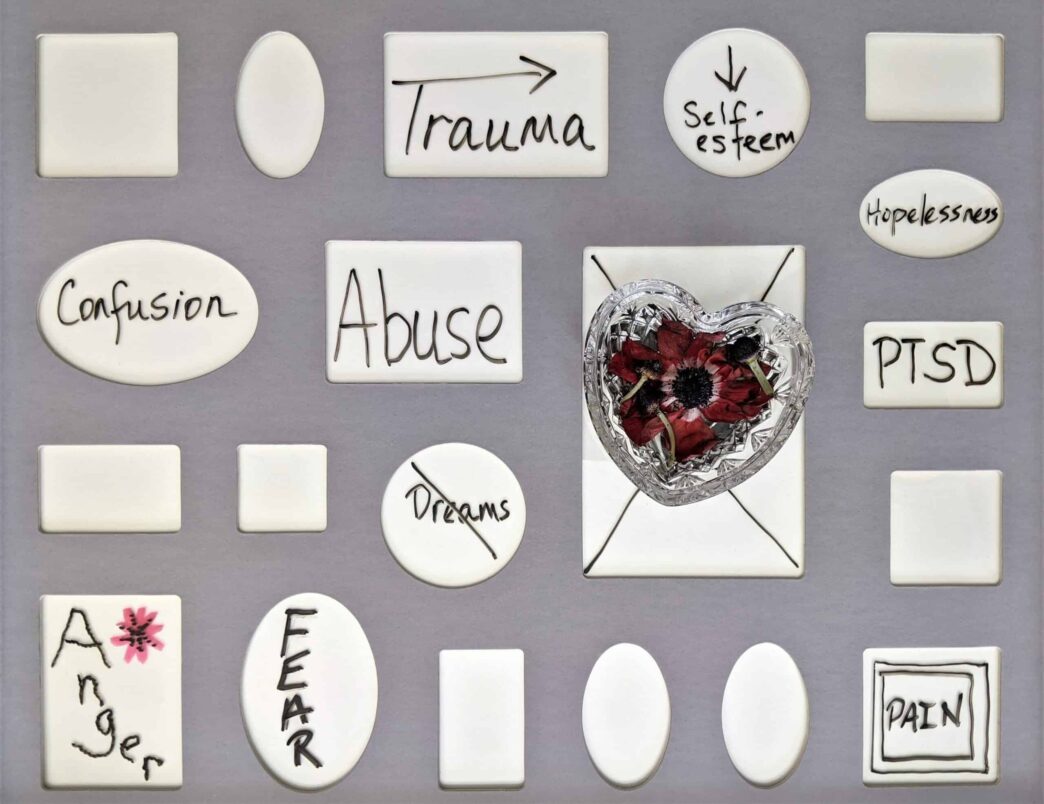PTSD or post-traumatic stress disorder develops after witnessing an incredibly distressful event which threatens your safety. Anxiety is a normal reaction after a traumatic experience, but if the feelings persist for too long, altering your life, you may be dealing with PTSD.
When experiencing a lot of stress in a situation, your body enters the fight or flight state, causing your heart to pound faster and your blood pressure to increase. But as soon as the danger passes, the body goes back to normal. PTSD happens when you deal with too much stress, and your nervous system gets stuck and can’t return to a state of balance.
What causes PTSD?
Trauma is a personal experience, meaning two people can perceive the same situation differently. You must remember that your trauma is valid, and even if someone else may have gone through something worse, that doesn’t mean their experience negates yours.
While PTSD is often associated with war, any shattering event that leaves you hopeless can trigger this condition:
- Being a victim of sexual abuse;
- Being involved in a vehicle collision;
- Being bullied;
- Experiencing violence, such as physical assault or a terrorist attack;
- Experiencing a natural disaster, such as an earthquake;
- Getting a life-threatening diagnosis;
- Having a job that involves hearing or seeing distressing things, such as the emergency services;
- Losing someone you love.
What are the symptoms of PTSD?
People have different tolerance to stress, so PTSD can look different from one individual to another. Generally, symptoms of PTSD occur hours or days after a traumatic event, but sometimes they don’t appear only after weeks, months or years. The symptoms may seem to appear out of the blue, or they may be triggered by an external factor that reminds you of the traumatic event, like a smell, noise or image.
However, there are some common signs of PTSD to look for, such as:
- Flashbacks and nightmares;
- Intrusive memories of the event;
- Intense physical sensations, like rapid breathing, muscle tension, nausea, and sweating;
- Sleep disturbances;
- Lack of concentration;
- Irritability or anger outbursts;
- Emotional numbness;
- Feelings of loneliness and hopelessness;
- Self-blame, guilt and shame;
- Substance abuse;
- Suicidal thoughts.
There is hope: helpful ways to cope with PTSD
Dealing with PTSD can make life incredibly difficult, but it is possible to recover from it. However, it’s important to remember that the process can take time, and your healing won’t happen overnight. Moreover, your traumatic memories may not disappear completely, but that doesn’t mean you will be forever stuck. Even if you may feel hopeless now, there is a light at the end of the tunnel, and you will find it.
First, recovering from a traumatic experience on your own can be difficult, so we recommend seeking support from a mental health professional. Different types of therapy are available for PTSD, and they are all effective in treating this debilitating condition, such as CBT, DBT, EMDR, and prolonged exposure therapy.
If the traumatic event was a criminal act, like violence or abuse, which left you with physical or psychological injuries, you can get compensation for them. Please visit https://www.compensationcalculatoruk.co.uk/criminal-injuries-compensation-calculator/ to learn more about criminal injury claims.
Besides support and starting therapy, there are other things you can do on your own to cope with PTSD in a healthy way, and we’ll discuss them below.
Move your body
Exercise can be very efficient if you have PTSD – besides releasing endorphins and boosting your mood, it helps you focus on your body. As you do so, your nervous system gradually becomes unstuck. Here are some activities you can try:
- Swimming, running or dancing. This rhythmic exercise shifts your focus from your thoughts to the sensations in your body as you engage in these activities.
- Hiking, mountain biking or camping. These outdoor activities work well for PTSD because they involve spending time in nature, which can be very healing.
Learn to self-soothe
When dealing with PTSD, you can experience a lot of anxiety, and it’s important to learn how to cope with it. Self-soothing techniques can help calm your body and mind and improve your mood. These can include:
- Using a weighted blanket, which has been proven to stimulate serotonin release and reduce anxiety;
- Self-massage or self-holding;
- Aromatherapy;
- Grounding yourself in the present moment by focusing on your senses;
- Listening to a relaxing playlist.
Distract yourself
A strong emotion can feel even more intense if you focus on it too long. On the other hand, using distraction techniques can temporarily take your attention away from it, making it easier to cope. Here are some helpful strategies to try:
- Watching a movie or a TV show;
- Playing a game;
- Reading;
- Doing housework;
- Visualising a beautiful scene;
- Meditating;
- Doing yoga;
- Taking a nap.
Journal about how you feel
Mental health experts recommend journaling as a way to cope with PTSD symptoms. Expressive writing can reduce anger and anxiety, restoring focus and allowing you to find meaning in life after a traumatic event. Journaling can be truly therapeutic, offering you a safe and private place where you can write about your feelings and experiences, making it easier to process what you went through. By journaling, you will notice that your mental health gradually improves as you feel more confident in managing anxiety and stress.
Seek social support
PTSD can leave you feeling disconnected from other people, and you may find yourself withdrawing from social activities. However, this can be detrimental to your recovery, so instead, you should surround yourself with the people you love and trust. Social interaction can help calm your nervous system, so reach out to someone you know will listen to you, whether it’s a family member, a close friend, or significant other. You don’t have to talk about your experience if you don’t feel comfortable doing so, but knowing that someone is there for you can positively impact your recovery. You can also consider joining a PTSD support group and meeting people who have gone through a similar experience – this will help decrease feelings of isolation.
Takeaway
When you experience trauma, you may think you won’t be able to feel joy again. But you will. Even if it’s hard to believe it now, if you take steps toward healing, there will come a day when those distressing memories will decrease in intensity. Remember to be patient, connect with loved ones, and don’t lose hope.















